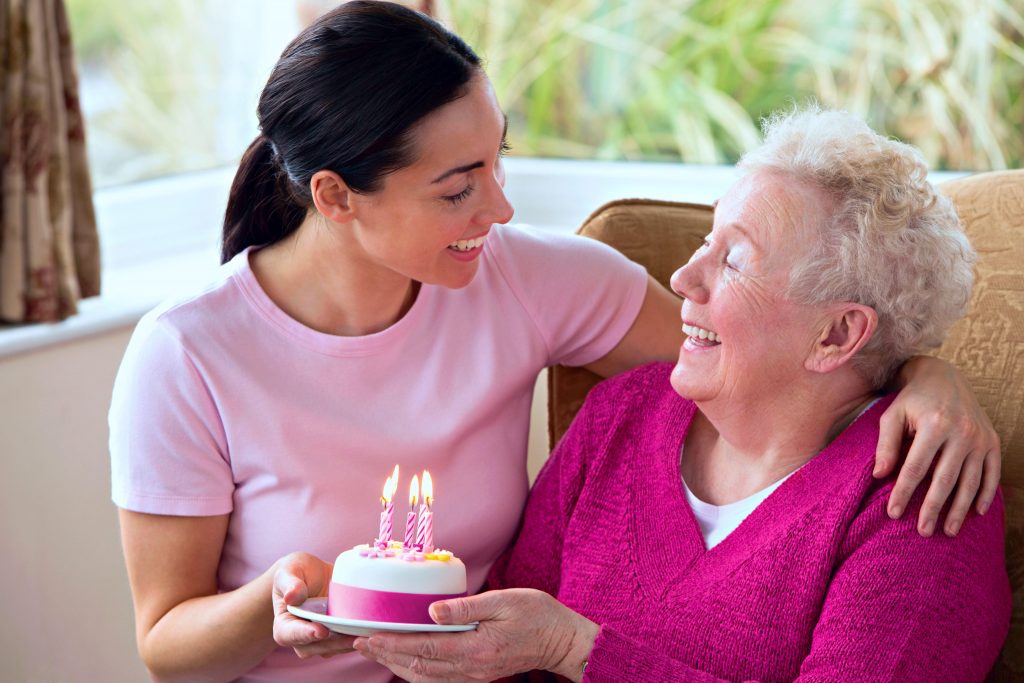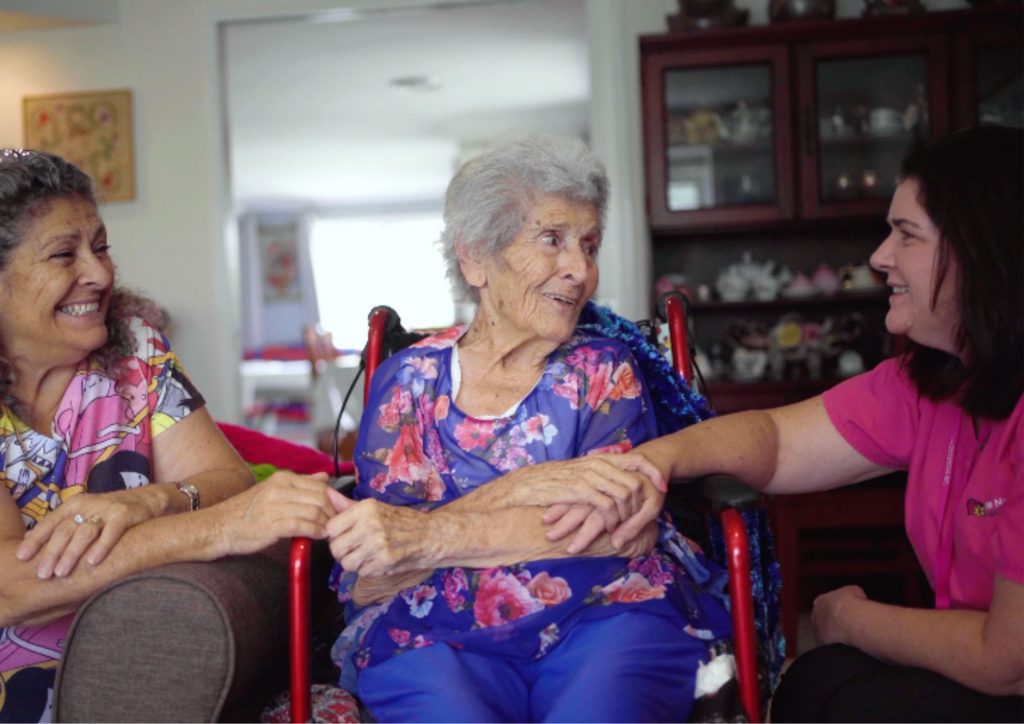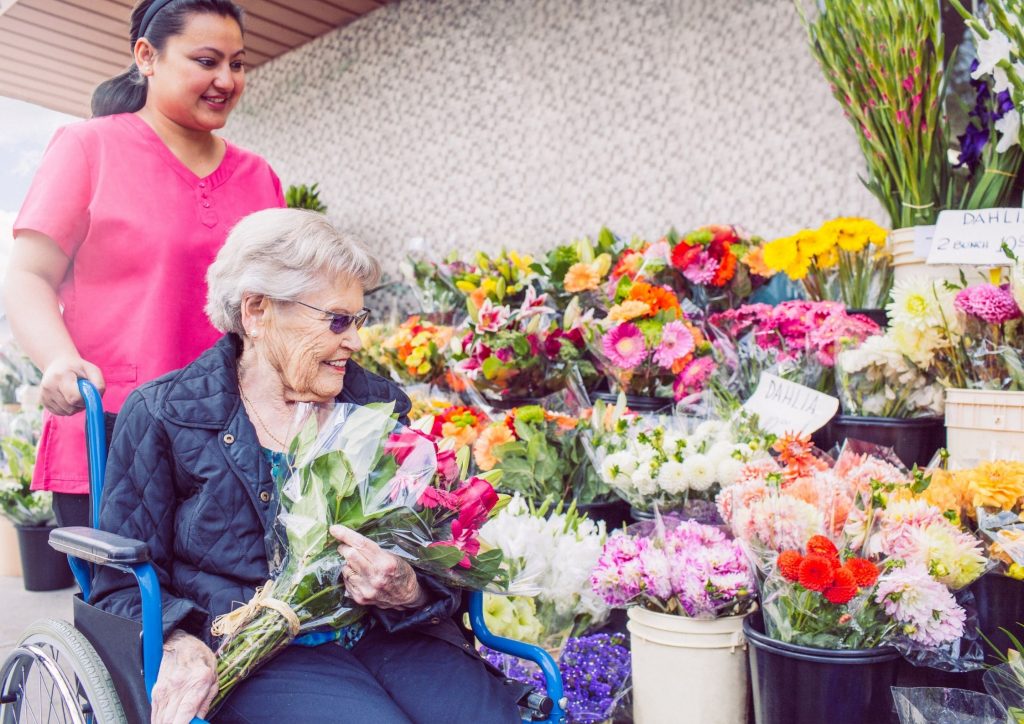Top 5 Ways to Support Carers
“To care for those who once cared for us is one of the highest honours.”— Tia Walker
National Carers Week focuses on raising community awareness for unpaid carers who provide support to their family members and friends who are dealing with various challenges such as disabilities, mental illness, chronic illnesses, terminal conditions, and frail age. It’s a reminder that caregiving roles can fall upon anyone at any point in their lives.
Caring for a loved one is an incredible and rewarding role but at times it can also become overwhelming as a result of the challenges that are experienced in the day-to-day. This is why, supporting carers and their well-being is just as crucial as supporting the well-being of individuals who require care.
This year’s Carer Wellbeing Survey revealed that many family carers are feeling overwhelmed, unsupported, and under significant stress.
If someone in your life is a carer, even small gestures can make a difference. Here are five thoughtful ways to support unpaid carers in their vital role.
These tips can help alleviate some of the stress carers face, and ensure that they also receive the care and support they need to continue their valuable role.
1. Connect Regularly
2. Show Appreciation
3. Initiate Support
4. Encourage Self-Care
5. Offer a Break


Connect Regularly
Caring for a loved one can be isolating, and carers often feel like they’re on their own in their struggles. The demands of caregiving often limit an individual’s ability to engage in social activities, maintain friendships, or participate in community events. This can negatively impact a carer’s overall mental health.
One of the most fundamental ways to support carer well-being is to regularly check in on them. Caring for someone with a chronic illness or disability can take a toll on a carer’s emotional well-being. They may experience feelings of guilt, anxiety, and even depression. A simple, heartfelt conversation or a text message can make a significant difference. By providing emotional support, reaching out, and listening to their concerns, you provide a safe space for them to express their emotions without judgment.
Consistently connecting and checking in on carers also helps build trust. Building trust between carers ensures their well-being as they take on the demanding role of caregiving. Consistent and meaningful connections with unpaid carers will help create a foundation of trust that fosters open communication and mutual support because they’ll know that they can rely on you for support and won’t hesitate to ask for help when needed.


Show Appreciation
Caring for a loved one is often a silent and underappreciated labor of love. In the role of an unpaid carer, individuals may find themselves dedicating significant time and energy to support their loved ones, yet their efforts often go unnoticed. Acknowledging and appreciating these carers is not only a matter of courtesy but also a vital means of supporting their physical and emotional well-being.
Expressing gratitude through a “thank you” can have a profound impact on a carer’s morale. It reassures them that their dedication and hard work are recognised and valued. By expressing gratitude regularly, you create an environment where unpaid carers feel seen and appreciated.
The caregiving journey is filled with numerous milestones, both big and small. These moments often go unnoticed, but they hold great significance. Recognising and celebrating these milestones can uplift the spirits of unpaid carers. It could be a birthday, an anniversary, or even a small achievement in the care recipient’s progress. These celebrations serve as reminders that the carer’s role is essential in reaching these milestones and provide moments of joy and respite from the daily challenges.
Thoughtful, personalised gestures of appreciation convey a deep understanding of the carer’s needs and interests. Whether it’s a handwritten note, a small gift, or a gesture tailored to their preferences, these acts show that you’ve considered their well-being. Even seemingly small tokens of appreciation can have a profound impact, emphasising the value of the caregiver’s role and the support they provide.


Initiate Support
Often, carers find themselves overwhelmed and hesitant to ask for help, which is why initiating support can make a substantial difference in their lives.
Instead of relying on the generic, “Let me know if you need anything,” offering specific ways to help demonstrates a sincere commitment to lightening the caregiver’s load. For instance, saying, “I can pick up groceries for you,” or “I’m available to watch your loved one for a few hours this weekend,” not only shows support for carers and their responsibilities but also conveys a genuine willingness to assist with concrete tasks.
Encouraging and connecting carers with online support services, direct support programs, peer support groups, online counseling support, and financial support through the Commonwealth Carer Gateway, and other support organisations such as Carers Victoria, can be a pivotal step in their caregiving journey. These resources are often invaluable, offering guidance, emotional support, and access to information and services that unpaid carers may not be aware of. By taking the lead in introducing carers to these networks, you empower them to build a robust support system and equip them with the knowledge and contacts necessary to navigate the complexities of caregiving.
Sometimes, carers are so immersed in their roles that they may not recognise when they need assistance. As a supportive friend or family member, you can provide carer support by stepping in as an advocate. By keeping a watchful eye on their well-being and the care recipient’s needs, you can play a critical role in ensuring that the caregiving situation is as manageable as possible. If you notice the caregiver is struggling or if their loved one’s needs are not being adequately addressed, be their voice. Help them access the appropriate resources, services, or medical attention. This advocacy ensures that the caregiver and their care recipient receive the care and support they genuinely require.


Encourage Self-Care
Caregivers often prioritise the well-being of their loved ones at the expense of their own, yet self-care is not a luxury but a fundamental requirement for maintaining their physical and emotional health. Encouraging caregivers to practice self-care is essential for their ability to continue providing quality care effectively.
Sharing self-care suggestions and ideas can be a powerful way to initiate a self-care routine for caregivers. By providing a range of options, such as mindfulness exercises, yoga, meditation, or simply taking a peaceful walk in the park, you can help caregivers find activities that resonate with them. These suggestions serve as a starting point, introducing caregivers to the world of self-care practices they may not have considered.
Collaborating with caregivers to develop a personalised self-care plan is an effective method to ensure they allocate time for self-care in their busy schedules. This plan can encompass a variety of self-care activities and be integrated into their daily or weekly routines. By making self-care a structured part of their lives, caregivers are more likely to prioritize and consistently engage in these activities, which can lead to improved physical and emotional well-being.
Encouraging caregivers to seek professional assistance, such as therapy or counseling, is a critical component of supporting their emotional well-being. Sometimes, caregivers grapple with intense emotions and stress that may necessitate professional guidance. A therapist or counselor can provide valuable coping strategies, emotional support, and a safe space to express their feelings. Encouraging caregivers to take this step demonstrates a commitment to their mental and emotional health, promoting resilience and enhancing their caregiving capabilities.
Encouraging self-care is not only an act of compassion but also allows you to empower carers to strike a balance between caregiving responsibilities and their own well-being, ultimately leading to improved overall health and more effective caregiving.


Offer a Break
Very often, carers often put their own needs and well-being on hold to care for their loved ones. While this selflessness is very admirable and commendable, it can lead to caregiver burnout.
Caregiver burnout is a state of physical, emotional, and mental exhaustion that often affects individuals who provide care and support to a loved one and can cause one or more of the following factors:
- Overwhelming Stress
- Physical Exhaustion
- Emotional Drain
- Social Isolation
- Neglected Self-Care
- Loss of Identity
- Decreased Empathy
- Increased Health Risks
One of the most effective ways to alleviate caregiver burnout is by offering to give them a break from their daily duties. These breaks allow caregivers to rest and recharge while also promoting their mental and emotional well-being, enabling caregivers to maintain a healthier balance between their caring duties and personal lives. Breaks can also lead to improved relationships between caregivers and their loved ones, as it reduces stress and fosters a more patient and empathetic caregiving approach.
There are a few ways you can support carer’s well-being by offering them the chance to rest and recharge:
- Scheduled Breaks – Encourage carers to take regular breaks, whether for an afternoon, a day, or a weekend. During this time, they can focus on their own needs, and hobbies, or simply relax. Offer to step in and help with caregiving duties during these breaks.
- Utilise Respite Care Services – Many communities offer in-home respite care services. These services provide trained caregivers who can temporarily take over the care responsibilities, allowing the primary carer to take a much-needed break.
- Care Sharing – Encourage carers to share responsibilities with family members or friends. This can help distribute the caregiving load and ensure that no single individual bears the brunt of the responsibility.
Seeking Professional Support Services
When supporting carers, you can also recommend the assistance of professional providers such as Nurse Next Door Home Care Services who are passionate about Making Lives Better and can provide much-needed respite care.
Nurse Next Door, like to do home care a little differently. Aside from ensuring clients can continue to maintain their quality of life through in-home nursing services and non-medical home care, their unique model of care focuses on five pillars:
- Choice – Doing what you want, when you want to do it
- Purpose – Having meaning in your life
- Autonomy – Your right to make the decisions for yourself free outside of influences
- Belonging – Accepting ourselves and others for who we are
- Respect – Showing care, concern, and consideration for others, even when they are different from you
As an approved provider, Nurse Next Door strives for the perfect match when pairing caregivers and nurses with clients who can offer both personal care services and clinical in-home nursing.
Their care workers are here to support you or your loved one with anything ranging from domestic assistance with everyday tasks for your personal care needs to more complex medical care services such as pain management, wound care, catheter management, palliative care, and many more. The choice is simply yours.


At Nurse Next Door, we are passionate about Making Lives Better™.
If your are looking at Caregiving as a Career™ click here to learn more and see what opporunitites are available in your local area.
If you require care in your own home, on your own terms, contact us 24/7 on 1300 600 247 to discuss how Nurse Next Door can help you keep doing what you love.
